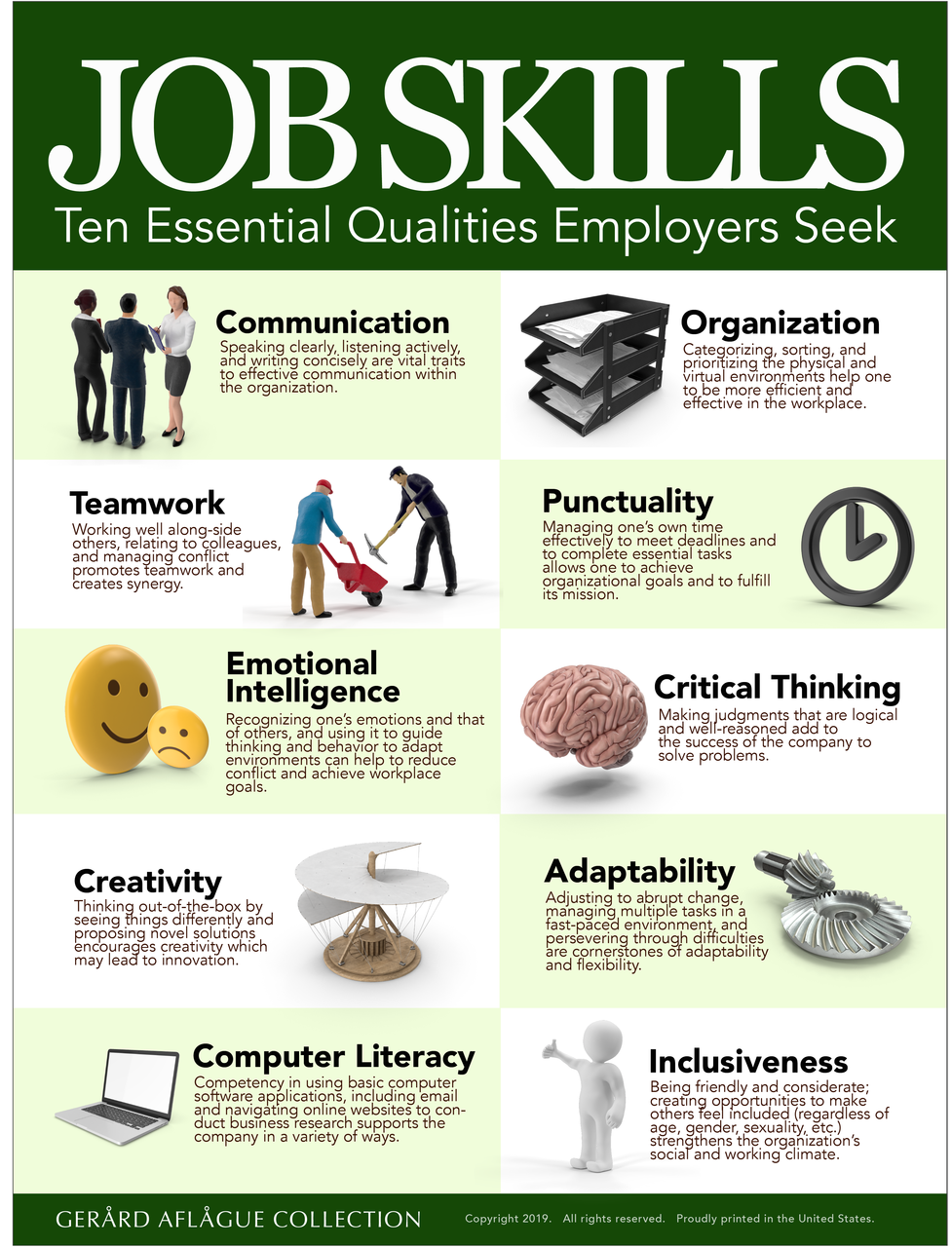Job Skills: Essential Abilities for a Successful Career

Types of Job Skills
Technical Skills
Technical skills are specific abilities that are required for a particular job or industry. These skills are often learned through formal education or on-the-job training and can include programming languages, software proficiency, or knowledge of machinery or equipment.
Soft Skills
Soft skills refer to the personal attributes and traits that enable individuals to work effectively with others. These skills are often innate or developed through life experiences and can include communication, teamwork, leadership, and problem-solving.
Transferable Skills
Transferable skills are abilities that can be applied to a variety of different jobs or industries. These skills are often developed through previous work experience, education, or personal interests and can include time management, organization, or public speaking.
Expanding on Soft Skills: Communication
One of the most important soft skills is communication. Effective communication is critical in almost every job and industry, from customer service to management. Communication skills include the ability to convey information clearly and concisely, listen actively, and provide feedback.
Active Listening
Active listening is a key communication skill that involves fully focusing on what the other person is saying, understanding their message, and responding appropriately. This skill is essential for building strong relationships and fostering trust and respect in the workplace.
Providing Feedback
Providing feedback is another important communication skill that involves giving constructive criticism or praise in a way that is helpful and respectful. Effective feedback can help to improve job performance, build confidence, and strengthen working relationships.
Benefits of Strong Communication Skills
Having strong communication skills can provide many benefits in the workplace, including:
- Improved productivity and efficiency
- Stronger relationships with colleagues and clients
- Increased job satisfaction and motivation
- Reduced misunderstandings and conflicts
Steps to Developing Job Skills
Developing job skills takes time and effort, but with dedication and practice, anyone can improve their abilities. Here are some steps to help you develop your job skills:
Identify Your Strengths and Weaknesses
Take an honest assessment of your current skills and identify areas where you excel and areas where you need improvement. This will help you focus your efforts and develop a plan for growth.
Set Goals
Set specific, measurable, and achievable goals for skill development. This will help you stay motivated and track your progress.
Practice Regularly
Regular practice is essential for skill development. Look for opportunities to apply your skills in different situations and seek feedback from others to help you improve.
Continually Learn and Grow
Stay up-to-date with industry trends and new technologies by reading industry publications, attending conferences or workshops, or taking online courses. This will help you stay competitive and improve your skills over time.
Benefits and Drawbacks of Developing Job Skills
Benefits
- Increased job opportunities and career advancement
- Higher earning potential
- Greater job satisfaction and fulfillment
- Improved personal and professional growth
Drawbacks
- Time-consuming and requires dedication and effort
- May require financial investment for education or training
- May not always lead to immediate career advancement or higher pay
FAQs
1. What are some examples of technical skills?
Examples of technical skills include programming languages, software proficiency, knowledge of machinery or equipment, and data analysis.
2. Can soft skills be learned?
Soft skills can be learned and developed through practice, feedback, and experience.
3. What are some examples of transferable skills?
Examples of transferable skills include time management, organization, public speaking, and problem-solving.
4. How can I improve my communication skills?
You can improve your communication skills by actively listening, providing feedback, and practicing effective communication techniques in different situations.
